- Home
- John Ellsworth
30 Days of Justis
30 Days of Justis Read online
30 Days of Justis
A Michael Gresham Novel
John Ellsworth
For Adriane
1
Dear Mister Grezam:
I need Justis. They got me in Spokane jail. Now they told a lies and say I killed a man. Please help me. It’s first degree murder, they say.
Sincerely, Cache Evans.
Oh, almost forget. Millicent is my mom.
I am your daughter.
2
I'm guessing the letter found me thanks to a bit of research by someone at the jail—maybe a counselor, maybe a priest.
Whatever; the letter has hunted me down. It came to my office here in Washington D.C. I work for the U.S. Attorney. My current assignment is the prosecution of terrorists. I work out of a secluded office, and I'm guarded 24/7 by the U.S. Marshal's service. For this letter to have found me, squirreled away beyond the Washington Beltway, is a minor miracle. But here it is, centered among the piles of legal files covering my desk in my wood-paneled, windowless office. There it remains for hours.
Lunch comes and goes. By chance, I notice the letter again. So I pull it out of the envelope and re-read.
Letters like it are common. Prisoners across the country are desperate for someone to save them. This letter in the small, white envelope with its upside-down stamps looks to me like one more eleventh-hour cry for help by someone who figures she is somehow related to me. Or has a special bond with me because she read about me, or whatever.
So, I instinctively back off. It isn't the first time someone has tried to draw me in with a "lost-child" scheme. Now here we are again. A new daughter? I don't think so. I try to imagine where this young woman came from as I read it yet again. But this time I am struck by one gotcha: she knows about Millicent. My Millicent detour was nearly thirty years ago. That's a long time in reverse for a pure stranger to know about.
I re-read the crude handwriting and try to imagine the writer's predicament. But then I catch myself. First-degree murder charges are terrible cases for any lawyer and at least ten times more so for the defendant. This is compounded by the fact the police aren't out there just randomly arresting people who might have killed someone. 99% of the time they've got the goods.
I ball up the letter and toss it into my wastebasket. But that isn't conclusive enough, so I fish it out, smooth the wrinkles, then run it through my shredder. I turn back to my real work, the job that makes it possible for me to feed and shelter my real family. The same job that keeps fertilizer bombs beyond the White House fence.
Our usual quitting time rolls around.
It's summertime here in Washington. July 3. Tomorrow is fireworks and a picnic on the Capitol Mall with my wife and kids followed by a movie at home, a World War Two feature about stalwart submariners just after Pearl Harbor. HBO runs it every year on July 4. The kids have seen it before—it's become our July 4 ritual. A relaxing day; a lazy, family day for this father, the wife he adores, and their three children. Plus, it falls on a Tuesday, which means most staff will take off the rest of the week. I won't be one of those playing hooky, however, because I'm a newbie here and have drawn some duty days no one else wanted.
I turn back to my chores. But the letter from someone claiming to be my daughter won't stay away. It has surfaced again in my thoughts.
What if she is your child? What would you do about it? I draw a deep breath and stare at the paper shredder. Too late, whoever you are.
But there is one thing I want to know about Washington State law, and so I check the Washington murder statute.
I read how a murder charge can be enhanced so a defendant will face execution if convicted. It raises the hairs on my neck to think of anyone dying at the hands of any state. These are the same governments that screw up just about every service they offer, maybe a hundred times every day. So how can they be trusted with someone's very life? It's bad enough how often they convict the wrong guys over and over until the Innocence Project hopefully steps in and makes things right. Suddenly I'm anxious. I'm disturbed and my stomach burns.
Something inside me just won't leave it alone. I swallow down a Prilosec; then I shove my regular job to the back burner. My conscience forces me to consider the letter problem with the most open mind I can muster.
Millicent, the writer's mother, was a woman I'd had a two-week thing with after my first divorce. Now someone's claiming that fortnight produced a child? Never once, I swear it, did Millicent contact me to tell me I'd fathered a child. If she had, I would have stepped up and been a good dad. But she didn't contact me; not a call, not a card, not a lawsuit for paternity—nothing.
Which doesn't surprise me. The Millicent Evans I knew had been fiercely independent. She would never marry, she swore, terribly influenced by watching her mother's abuse at the hands of Millicent's stepfather, a raging alcoholic.
I'm interrupted by Warner Johns, who mans the office next to mine. He's holding a Slurpee and a briefcase. Leaving for the week and I'm annoyed. Jealous.
"Don't let the marshals shoot anyone till I get back, Michael. Can you do that?"
"Not to worry. I've collected all their guns and locked them in my desk."
"Good on you. You want me to drop by with backyard burgers on Sunday?"
"Don't bother. Have you dared to open the kitchen refrigerators? There's enough moldy cheese in there to start a health food restaurant. I'll survive and maybe have my urinary tract infection cured."
"Funny man."
"I mean the mold. Like penicillin for infections."
He nods sadly.
"Say hi to Verona."
"Do the same with Angelina, Warner. Have yourself a grand old time."
"Later."
"Hey. One thing. What would you do if someone claiming to be your daughter wrote you a letter? What if she asked you to come save her from a first-degree murder charge?"
"I'd go. Why?"
"What if you didn't know if she was really your daughter?"
"I'd go find out. You get a letter like that?"
"I did."
"Then, go and see. You won't sleep until you do."
"How would you know if she's really your daughter?"
"Find out if she's a chronic worrier. If she is, you've got your kid."
"Right."
"Who's her mother?"
"Millicent somebody."
"What, you don't even know her last name?"
"It was a long time ago, Warner."
"Sheesh." He walks off, shaking his head.
When I knew her, Millicent was working part-time as a medical researcher at the University of California in San Diego and had a second job in La Jolla. I met her when I was taking a little get-over-it time following a hateful divorce. I was burned out, and California looked like the place to walk on the sand and listen to the waves and let my heart bleed out all its agony and pain one wave at a time. Which I did. But while I was there, settling in La Jolla, I met Millie. We spent ten of my fourteen days together.
Millie was brilliant, an engaging conversationalist, a biology theorist. Plus, she spouted the kind of wicked humor that has always turned my head. She had come to California from Mississippi, where her father was a sharecropper. He owned a team of mules and three goats, nothing more, while she was growing up. After saving every penny for a year, he bought her a Greyhound ticket, put together three lunches and three suppers that wouldn't need refrigeration, passed her five twenty-dollar bills, and kissed her goodbye. That was so long ago that Millicent, boarding the bus in Waveland, was told by the driver to sit in the rear with the other "coloreds."
Four days later, she climbed down off the bus in San Diego. She stretched and gulped down her first Pacific air, then made a vow. Millicent swore the ride fro
m Waveland to San Diego would be the last time she ever rode in the back of any public transportation. She was free of the South, by God, and that meant she would be riding up front from then on.
It turned out Millicent had a brain—a great brain. Eight years after climbing down out of the Greyhound, she had earned a Ph.D. in microbiology. She graduated with Highest Honors. On graduation day she was plucked from the rolls of the unemployed by a startup genetics lab in La Jolla. This was way before the world was sequencing DNA to eliminate a Petri dish teeming with frightening diseases that had long plagued humankind.
So, this Cache Evans—I retrieved her name from the backside of the envelope—is Millicent's daughter? Well, she certainly hasn't learned to spell under her mother's tutelage. She wants Justis? Seriously? Whatever happened to spelling the word Justice?
Which is where I have to catch myself. I've just learned I maybe have another daughter and the best I can come up with is a critique of her spelling? For the love of—
My hands automatically dial the phone number on the envelope flap. A short burst of ringing and another. On the third ring, a voice answers, "Spokane County Detention Services."
"My name is Michael Gresham. I need to speak to a prisoner by the name of Cache Evans."
"I'm sorry, Mr. Gresham, but we're not operating a switchboard for inmates. Please call during regular visiting hours."
She is about to hang up—I can hear it in her tone. But I catch her.
"I'm Ms. Evans' attorney. I would like to speak with my client. Please let's not complicate this beautiful July day."
The line goes silent. I hope I'm on hold. But I don't know.
A voice comes on the line. A voice I've never heard before, a voice that claims to be passed down from me.
"Hello?"
"Cache Evans?"
"Who's this?"
"Michael Gresham. You sent me a letter."
"Oh, my dad." Long pause. Then, "You actually called me?"
"Evidently I did. I have a few questions for you."
"Shoot, sir."
"First off, you say Millicent Evans was your mother?"
"Is my mother. She's still alive and kicking down in California.”
"Is she—is she--"
"Married? My goodness, you don't waste any time, do you? Must be where I get my hot blood. It sure wasn't my mom. She never met a man she didn't hate. I'm just the opposite. I live for engaging with the male species."
Great, she lives for men. That's just what a found father wants to hear out of the gate. Plus, there is the language. The speaker isn't someone who characteristically spells "justice" as "justis." And, "Engaging with the male species?" Who in hell talks like that?
"No, I meant to ask whether she is alive and well."
"Oh, yes, she's alive all right. I called her, but she told me she'd written me off. She's no longer willing to have me occupying her thoughts. Her words, not mine. But she is coming up to see me. Should I call you father, or dad, or what?"
"Let's take that a step at a time."
"No need. Mother has your DNA from the hairbrush you left when you ran out on her. She's done all the stuff she does in the lab. You're my dad by about a billion-to-one."
"Ran out on her? Is that what she told you I did?"
"She did not. That's what I always told myself when I cried because I didn't have a dad. I was angry at you the whole time I was growing up."
"I see."
"But the DNA has your fingerprints all over it. You're my father."
"I am, okay, well, DNA: that's the kind of thing I was going to suggest. But since it's already been done, why don't you call me Michael just for now while we get to know each other."
"We're gonna get to know each other?"
The decision is already made for me. My impulsivity has me dialing airlines as soon as we hang up.
No one can execute my child. I have become the father whose five-year-old is sent home crying by a mean mother down the street. It feels just like that. A man doesn't turn his back on a daughter in jail, I don't give a damn what she's done, and I don't give a damn about his day job, either. If she is mine—which I'm making room for inside my head—then I'm going to treat her like mine. No way would I ever leave my younger girls in a jail somewhere. They couldn't pull off a crime evil enough to cost them my love and my care. And it isn't going to happen with this one, either.
"We are going to get to know each other. I'm calling the airlines as soon as we hang up."
"Well, that's more than I hoped."
"I'm on my way, Cache."
"Goody."
"By the way, what are you in jail for?"
"What did I do or what do they say I did?"
"Both."
"Well, for one I was dating men on the street."
"As in—"
"As in selling my ass for dollars."
"Prostitution. Oh."
"Yeppers. That's what I was doing."
"Okay, so what do the cops say you were doing."
"They say I killed a man."
"Go on."
"They say I gave him HIV, which turned into AIDS, which killed him. They say I knew I had HIV when I had sex with him. But I swear I didn't, Michael. I didn't know. Besides, he forced me. This was fifteen years ago. Evidently, it became full-blown AIDS, and it killed him."
"Wait. How old are you?"
"Twenty-eight."
"And he had sex with you over fifteen years ago? That would make you thirteen."
"I was thirteen when he raped me. I lived in his house. I was his kid's nanny."
"Why were you living apart from your mom?"
"I ran away. I found out about you and hated her, and I ran away for not telling me about you. CPS took custody of me and placed me with different fosters. I wound up in this man's home. They paid me to nanny. Then he raped me."
I've heard enough.
"You stay put, okay? I'm on my way."
Stay put? As if she's about to wander off down to the soda fountain? She's in the can, Michael. Your oldest daughter is in jail on murder charges.
"Attorney Gresham, this is the switchboard. Your five minutes are up. Cache is no longer on the line with you. Goodbye."
"Wait. Where was she convicted? What county?"
"That would be Spokane County."
The line goes dead. I can only surmise that she hung up on me. No messing around with farewells with these people.
Well. I immediately dial the phone number of our office administrator, Bruce Billars. Bruce isn't going to like hearing from me. I'm going to be his problem for the night.
Fifteen minutes later, I've delivered the bad news to Bruce: that I've been called away on urgent family business and that he is going to need to replace me ASAP. Bruce isn't thrilled, but he always has a backup plan. That's why he's the administrator.
Next, I call the court in Spokane, where Cache was convicted. I write down the names they give me from her court file. The names of her defense and appellate lawyers. I hang up, and I am stunned. My daughter is on death row. The trial judge has signed the execution warrant.
So I call Kelly Larsyn, the lead trial lawyer. He takes the call without delay.
"This is Michael Gresham, Mr. Larsyn. I've just learned I'm Cache Evans' father."
Guarded tone, but he answers, "I was told Cache had no father."
"Well, she does. She's contacted me and convinced me I'm her father."
Pause. "Well, what can I do for you today, Mr. Gresham?"
"I'd like to ask you a couple of questions."
"Ask away."
"As I understand it, Cache has been convicted of giving AIDS to her foster father. He died years later from the disease."
"So the state prosecuted her for murder. Aggravated, which earned her the death penalty."
"I'm a lawyer, Mr. Larsyn. A criminal lawyer, like you. I don't understand how she could be convicted of murdering someone by giving them AIDS when she was raped."
"Yes, Cache
told me she was raped. But Cache didn't testify at trial. So the jury knew nothing about the alleged rape."
"And she didn't testify why?"
"Are you kidding? Your daughter has been working the streets for ten years. She's a common prostitute, Mr. Gresham. If a jury found that out, she'd have been convicted on their first vote."
"She was convicted anyway, Mr. Larsyn."
"Yes, but I kept the jury out for nearly three days before they got a verdict. I at least gave them something to think about."
"And you thought this outweighed the truth about her rape?”
"Cache made the ultimate decision about testifying, Mr. Gresham. You must know that."
I did. I did know that the client is always the one to decide whether to testify. With the active input of her attorney, of course.
"What's the status of the case now?"
"There is no status. There's nothing left to do for Cache. All appeals are exhausted."
"And so you're giving up? Just washing your hands of my daughter?"
"Mr. Gresham, I'm going to hang up now. This was a very hard-fought case, and I'm not going to be accused by a lawyer who wasn't even there. Maybe if you'd shown up for your kid's life, none of this would've happened."
I'm ready to bury the guy when the phone line goes dead. Washingtonians seem to hang up on me as a habit. That's two in a row.
I can only go to Washington and see my daughter. It can't be over for her. I'm one of those criminal lawyers who believe it's never over. Not until the doctor looks up from his stethoscope and confirms a death.
Goodbye to my wife and kids, then Lyft to the airport. At 7: 34 p.m. We're wheels-up non-stop to SEA-TAC, which will be followed by a Delta flight to Spokane.
As I unbuckle after a long nap, I head for the restroom, where I catch a glimpse of my face in the metal mirror. We are somewhere over Omaha. Glassy eyes; white around the lips; a film of sweat across the forehead; trembling hands not good for much except sliding the lock. Then out again, into the aisle, heading for first class. Eyes are looking up from iPads and paperbacks. They hold on my face. Everyone knows. Everyone but me.

 Girl, Under Oath (Michael Gresham Series)
Girl, Under Oath (Michael Gresham Series)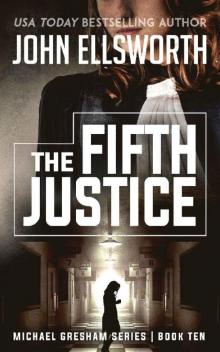 The Fifth Justice (Michael Gresham Legal Thrillers Book 10)
The Fifth Justice (Michael Gresham Legal Thrillers Book 10)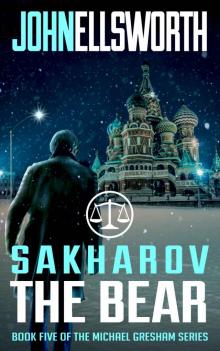 Michael Gresham (Book 5): Sakharov the Bear
Michael Gresham (Book 5): Sakharov the Bear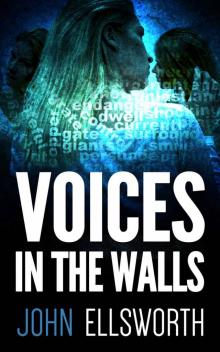 Voices In The Walls: A Psychological Thriller (Michael Gresham Series)
Voices In The Walls: A Psychological Thriller (Michael Gresham Series)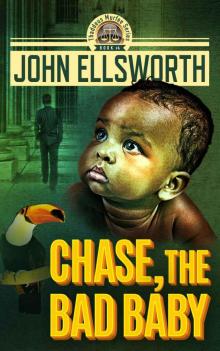 Chase, the Bad Baby: A Legal and Medical Thriller (Thaddeus Murfee Legal Thriller Series Book 4)
Chase, the Bad Baby: A Legal and Medical Thriller (Thaddeus Murfee Legal Thriller Series Book 4)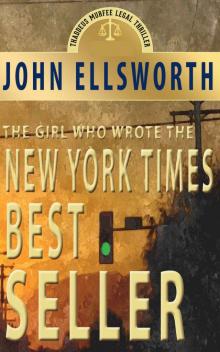 The Girl Who Wrote The New York Times Bestseller: A Novel (Thaddeus Murfee Legal Thrillers Book 8)
The Girl Who Wrote The New York Times Bestseller: A Novel (Thaddeus Murfee Legal Thrillers Book 8)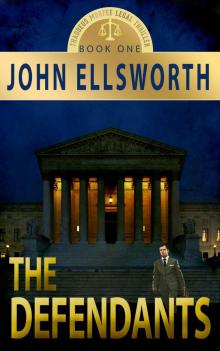 The Defendants: Crime Fiction & Legal Thriller (Thaddeus Murfee Legal Thriller Series Book 1)
The Defendants: Crime Fiction & Legal Thriller (Thaddeus Murfee Legal Thriller Series Book 1) Hellfire (Sisters In Law Book 2)
Hellfire (Sisters In Law Book 2)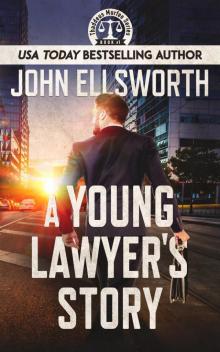 A Young Lawyer's story
A Young Lawyer's story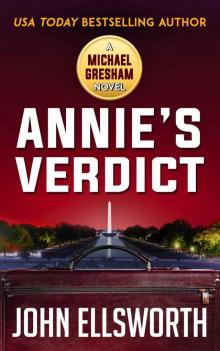 Annie's Verdict (Michael Gresham Legal Thrillers Book 6)
Annie's Verdict (Michael Gresham Legal Thrillers Book 6)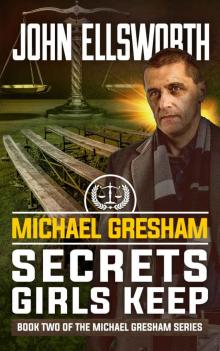 Legal Thriller: Michael Gresham: Secrets Girls Keep: A Courtroom Drama (Michael Gresham Legal Thriller Series Book 2)
Legal Thriller: Michael Gresham: Secrets Girls Keep: A Courtroom Drama (Michael Gresham Legal Thriller Series Book 2)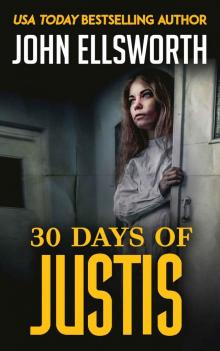 30 Days of Justis
30 Days of Justis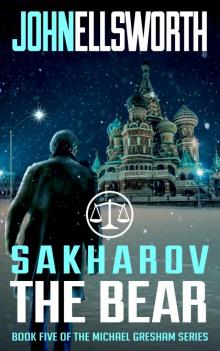 Sakharov the Bear (Michael Gresham Legal Thrillers Book 5)
Sakharov the Bear (Michael Gresham Legal Thrillers Book 5)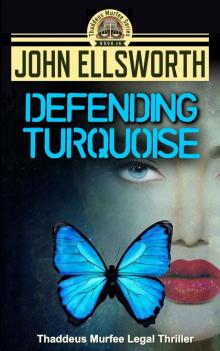 Defending Turquoise (Thaddeus Murfee Legal Thriller Series Book 5)
Defending Turquoise (Thaddeus Murfee Legal Thriller Series Book 5)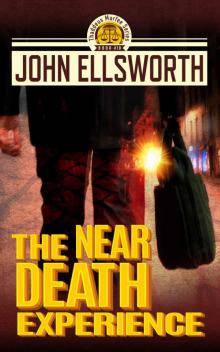 The Near Death Experience (Thaddeus Murfee Legal Thriller Series Book 10)
The Near Death Experience (Thaddeus Murfee Legal Thriller Series Book 10)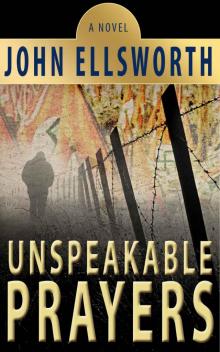 Unspeakable Prayers: WW II to Present Day (Thaddeus Murfee Series of Legal Thrillers)
Unspeakable Prayers: WW II to Present Day (Thaddeus Murfee Series of Legal Thrillers)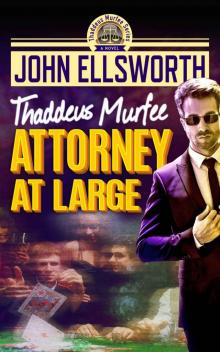 Attorney at Large (Thaddeus Murfee Legal Thriller Series Book 3)
Attorney at Large (Thaddeus Murfee Legal Thriller Series Book 3)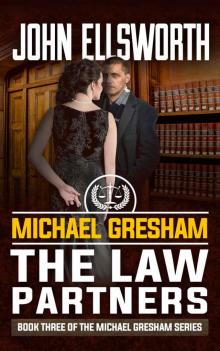 The Law Partners (Michael Gresham Legal Thriller Series Book 3)
The Law Partners (Michael Gresham Legal Thriller Series Book 3)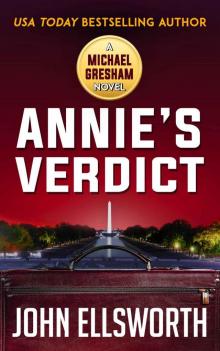 Annie's Verdict
Annie's Verdict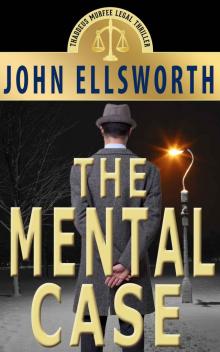 The Mental Case (Thaddeus Murfee Legal Thriller Series Book 6)
The Mental Case (Thaddeus Murfee Legal Thriller Series Book 6)